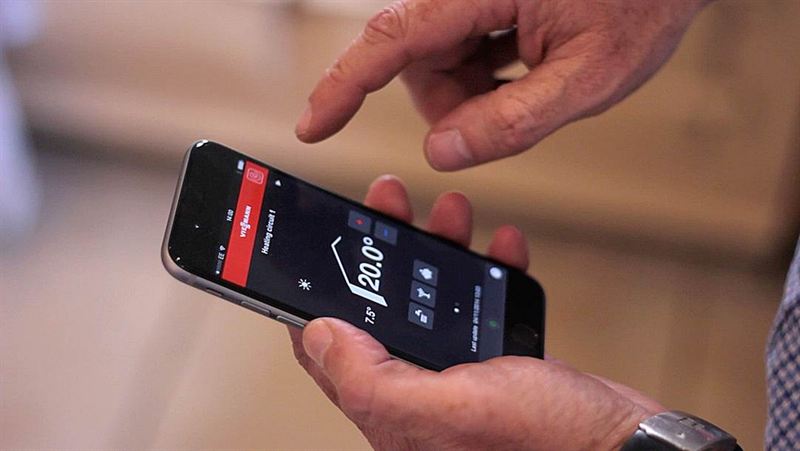First fuel cell heat and power system installed in UK home

Installation of new technology sees homeowners of four-bed Wolverhampton house £1000 better off and their CO2 footprint cut by half.
The UK’s first mass produced, commercially available domestic fuel cell system, Viessmann’s Vitovalor 300-P, has been successfully installed into a family home in Wolverhampton.
The system will supply the 1910 home with the energy it requires and reduce CO2 by 50 per cent, compared to the separate generation of heat and power. Total spend on energy utility bills will be cut by 36 per cent, approximately £400 for the Wolverhampton home, due to the on-site generation of electricity. Any excess that is created can be exported back into the grid. Based on a Feed-in-Tariff of 15p per kWh, this will provide the household with a return upwards of £600 per year.
The energy created by the Vitovalor 300-P - approximately 4,500 kWh per year - is equivalent to that generated by 30 m2 of solar PV panels; which in practice would involve covering both sides of a large roof in its entirety. Yet the fuel cell unit just takes up the space of a fridge freezer without any impact on the external aesthetics of the property.
Leading international heating systems manufacturer Viessmann jointly developed the Vitovalor 300-P polymer electrolyte fuel cell (PEFC)-based micro combined heat and power (mCHP) system with Panasonic. It is a union that takes the technology of Panasonic’s fuel cell, proven in thousands of electricity-dependent homes in Japan, and combines it with German manufacturer, Viessmann’s heating and control technology.
Comprising of a fuel cell unit, peak load boiler (for use on only the coldest days of the year) and hot water tank, the system is as easy to retrofit into UK homes as it is to install in new builds. It requires the same connections as a gas boiler; gas, power, hot and cold water feeds and a flue. The system is MCS-approved meaning it has been rigorously tested to comply with industry standards.
Darren McMahon, marketing director says, “To continue to reduce CO2 emissions and make ourselves, as a society, more energy efficient, we need to develop solutions for gas. Beside this, microgeneration – that’s people generating their own electricity on site – is about twice as efficient as relying on centralised power stations. The Vitovalor 300-P is a technology available today, that reduces CO2 by 50 per cent, by using the UK’s existing gas infrastructure to make electricity efficiently at the point of use. This first installation into a domestic dwelling in the UK is a significant moment”.
Home owner and technical director at Viessmann, Christian Engelke said, “In addition to being able to do something for the environment, this system will allow me to generate as much electricity as I use, as well as guard against perpetually rising utility costs. As a family, we’re really excited about monitoring our energy use and production.”
About Viessmann Ltd.
Viessmann Limited is part of the Viessmann Group of Companies which is one of the leading international manufacturers of heating systems. Founded in 1917, the family business is overseen by the chairmanship of Managing Partner Dr. Martin Viessmann. The Group has annual turnover of EUR 2.1 billion and employs a staff of approximately 11,400. Viessmann’s comprehensive product range encompasses all fuel types and applications, allowing it to deliver high quality, efficient and fully integrated solutions. With an output range of 1.5 to 120,000 kW, Viessmann offers oil and gas-fired boilers, solar thermal and photovoltaics, combined heat and power modules (CHP), ground, air and water sourced heat pumps and biomass boilers.
Press Enquiries
Beth Osborne, Propel Technology, Unit 4, Manor Farm Offices, Northend Road, Fenny Compton, Warwickshire, CV47 2YY. +44 (0)1295 770602. beth@propel-technology.com
Tags:







